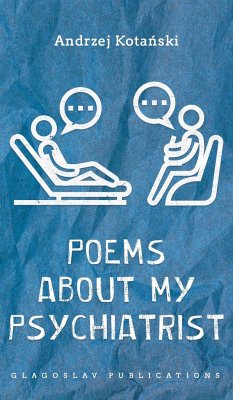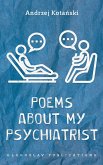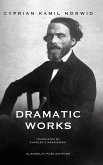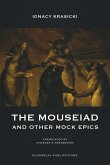'The world's really not the way it is,' says the eponymous Psychiatrist in Andrzej Kotäski's wildly popular Poems about my Psychiatrist, 'it's not what it seems to us to be / to tell the truth / the world doesn't actually exist.' This is problematical, to say the least. The world doesn't exist? Well, here I am, and here is this book, real paper, which I hold in my real hands. If you're confused, don't expect much help to come from the book itself. Do we have two narrators here, or one? Is there a patient and a psychiatrist in conversation, or is the psychiatrist merely a projection of the patient's own mind, a cry for help incarnate, from a person unable to deal with life? As ambiguity is at the heart of great literature, this is not a bad thing: it gives us, as readers, something to argue about, an elusive answer to chase down over successive, ever closer readings of a book made up of deceptively straightforward, lucid verses. The bigger problem is the staggering popularity of Poems about my Psychiatrist, recently reprinted in an anniversary edition that contains new poems added to the original cycle. Kotäski's work is a bestseller in Poland - a status of which few, if any, collections of poetry may boast. To what does it owe its popularity? Kotäski's incisive, bare-bones approach to poetry, which savours of the best compositions of Tadeusz Ró¿ewicz and Zbigniew Herbert, presents to us an unnamed anti-hero. Unlike Ró¿ewicz's disillusioned soldier returning from the war, and Herbert's Pan Cogito - that indefatigable defender of Mediterranean culture and human dignity in the face of totalitarianism - Kotäski's anti-hero is a neurotic sort, a jumble of complexes, who can be best compared to the twitchy protagonists of Woody Allen's films. If we, as readers, identify with him, what does this say about ourselves, and our culture, now in the third decade of the twenty-first century? Here, reader, in the English translation of Charles S. Kraszewski, we present you with a mirror. Open your eyes, if you dare.
Hinweis: Dieser Artikel kann nur an eine deutsche Lieferadresse ausgeliefert werden.
Hinweis: Dieser Artikel kann nur an eine deutsche Lieferadresse ausgeliefert werden.








